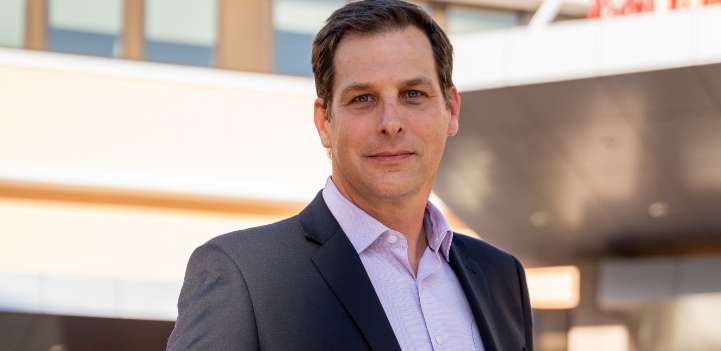Pediatric ER physician’s company aims to increase efficiency, improve patient care and address burnout
Even with the shift from paper to electronic records, Fernando G. Mendoza, M.D., recognized that doctors need to spend more time with patients and less time taking notes.
“Health care is human care,” said Dr.Mendoza, who completed his pediatric residency at the University of Miami/Jackson Health System in 2002 and returned three years later as an attending physician. “There is a lot of technology surrounding advances in health care, but sometimes the human solution is the right solution. Technology cannot replace someone who is asking questions, listening and applying their knowledge to determine the best treatment plan.”
When Dr. Mendoza became medical director of Baptist Children’s Hospital Pediatric Emergency Department in 2012, a position he still holds, he realized that he and his colleagues were spending so many hours documenting charts after finishing their shifts that it was leading to burnout. The entrepreneur in him wanted to find a way to help doctors do more of what they do best: see patients and focus on patient care.
“The medical environment at UM/Jackson taps into your creativity,” said Dr.Mendoza, who is board certified in pediatrics and pediatric emergency medicine. “When there is a problem, you develop the confidence to fix it.”
The answer was Scrivas, a medical scribe company that he founded in 2014. Scribes are trained professionals who work at the physician’s side and document the physician-patient interaction, enabling doctors to move from patient to patient efficiently and quickly. The company has grown from serving a single emergency department to
servicing multiple medical offices and healthcare networks in South Florida.
“When I got my first scribe, I looked forward to my emergency room shifts again,” said Dr. Mendoza. “I could finally talk directly to a patient or family member without being distracted with charting.” As the healthcare landscape evolves, so does the role of a scribe. With the advancement of artificial intelligence, Dr. Mendoza believes that scribes will become like patient
managers that help guide physicians through a myriad of information so they can come up with the best plan of care for patients.
“Many physicians are exiting their professions early, and we are beginning to face physician shortages,” said Dr. Mendoza. “Our goal is to keep physicians happier for a little longer.”

